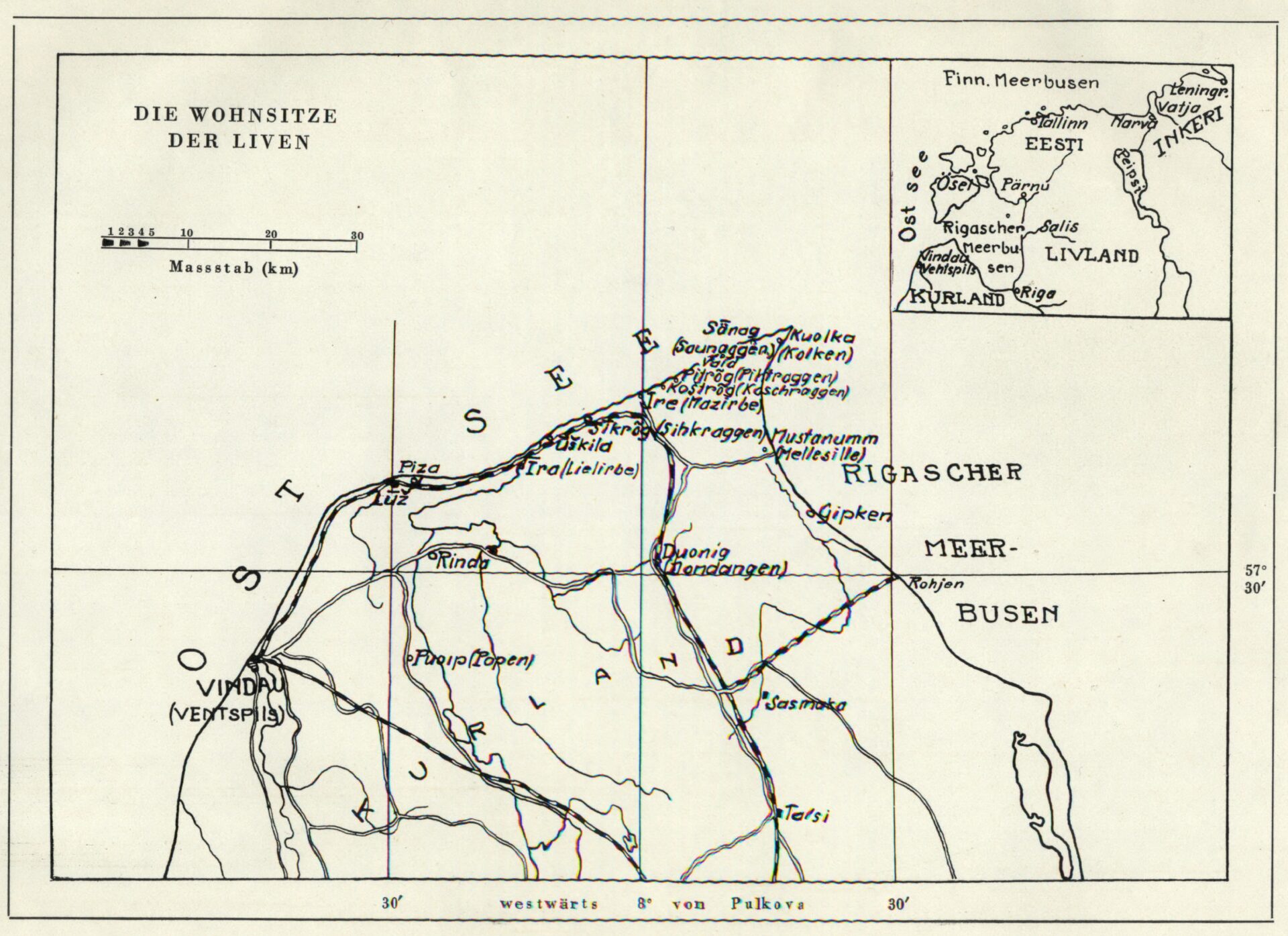
Livonian
7.2. Gramatik / Grammar
Quotative
The quotative or indirect speech is used to convey mediated information. It is commonly used in complement clauses that are governed by a verb of expression or perception like ki’zzõ ’to ask’, kūlõ ’to hear’, nägțõ ’to show’, etc., e.g., Neitst tund u’lzõ ja ki’zzõn, mis ta tǭ’ji, skūolmēstar ve’l ma’ggiji ’The girl (had) come out and asked, what he wanted, the teacher was still asleep’. Unlike in Estonian, where the quotative generally indicates that the speaker does not take responsibility for the accuracy of a statement’s content, in Livonian its main function is specifically to indicate mediated information.
The endings are -i, -ji, -iji; in the plural, -d is added.
- -i – is used with the verbs vȱlda ’to be’, tūlda ’to come’, pānda ’to put’: vȯļļ/i ’(is said to) be’, tuļļ/i ’(is said to) come’, paņņ/i ’(is said to) put’. -ļ and -ņ appear in the word stem analogically with simple past tense forms, cf. vȯ’ļ ’(s/he) was’, tu’ļ ‘(s/he) came’, pa’ņ ’(s/he) put’.
- -ji – occurs
a) with monosyllabic vowel-stem verbs, e.g., vī/ji ‘(is said to) lead’. This also includes verbs with stem vowels, which are shortened in the simple past tense, the same as in the quotative stem ē occurs in place of ǟ and īe, cf.kǟ’/dõ ’to walk’ : kei ’(s/he) walked’ : kē/ji ’(is said to) walk’, sīe/dõ ’to eat’ : sei ’(s/he) ate’ : sē/ji ’(is said to) eat’;
b) with disyllabic a-/ā-stems. - -iji – occurs in verbs with ū-, õ-, and consonant stems; for verbs with gradation, it is added to the strong grade form.
| Person | vȱl|da ’to be’ | sǭ|dõ ’to get’ | pall|õ ’to ask’ | lu’gg|õ ’to read’ | kērat|õ ’to write’ |
| ma, sa, ta | vȯļļ |i | sǭ|ji | pǭla|ji | lu’gg|iji | kērat|iji |
| mēg, tēg, ne | vȯļļ |i|d | sǭ|ji|d | pǭla|ji|d | lu’gg|iji|d | kērat|iji|d |
The negative is formed by adding the negative verb:
| ma | ä’b | kērat|iji |
| sa | ä’d | kērat|iji |
| ta | ä’b | kērat|iji |
| mēg | ä’b | kērat|iji|d |
| tēg | ät | kērat|iji|d |
| ne | ä’b | kērat|iji|d |
Nt Seļļi vanā rištīng ä’b võiji jemīņ midēgõst sieldõks oppõ. ’An old man like this (is said to) not be able to learn anything clearly anymore.’


